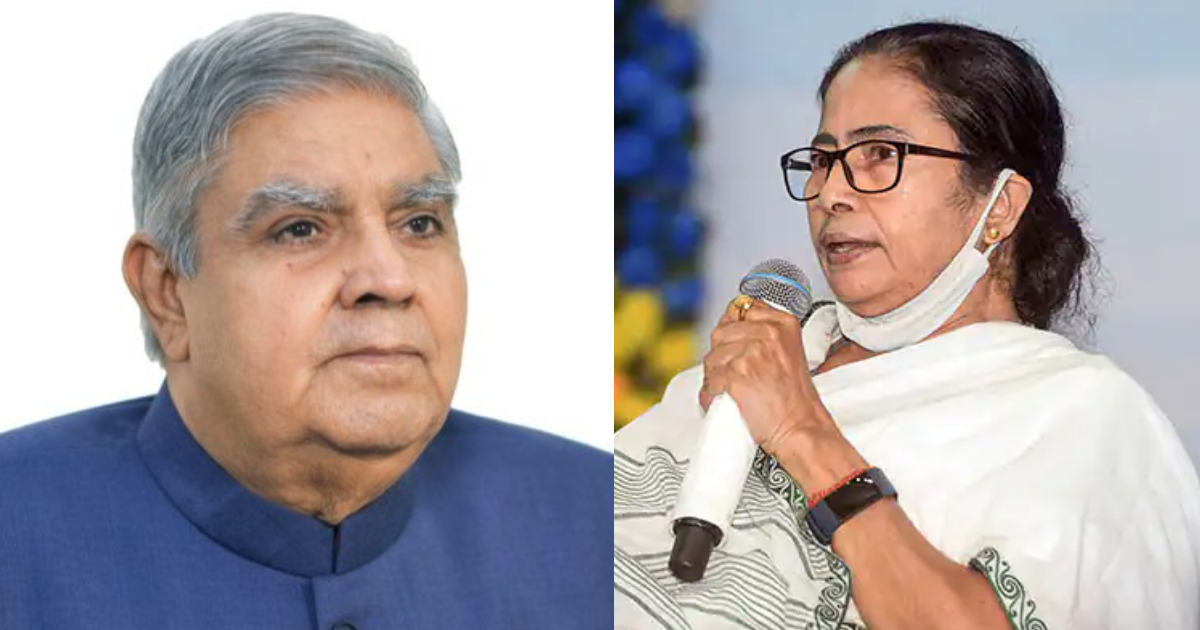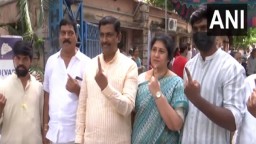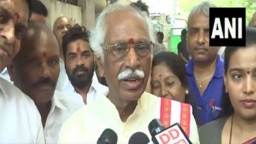Latest News
STATE GOVERNMENTS vs GOVERNORS: A BITTER FLASHPOINT

The relationship between state governments and their respective Governors has been making headlines every now and then and currently, it is a major concern as far as West Bengal is concerned.
It is unfortunate that subsequent state governments have been describing the “negative image” of state Governors and terming them to be “agents of the Centre” has come to the fore again.
Recently, West Bengal Governor Jagdeep Dhankhar has raised several issues where he has contested the state government’s decisions.
From the Howrah Corporation Bill 2021 to the appointment of ViceChancellors in 24 staterun universities, Governor Dhankar has objected to the state government’s functioning and decisions, inviting criticism from Chief Minister Mamata Banerjee and the TMC.
Even as conflicts between Governors and state governments are nothing new and West Bengal has had its share of “unrest” in this regard since 1967, this time the matter has gone beyond the corridors of legislative decorum and political etiquette.
The media blackout of the Governor’s speech in the Assembly or writing to President Ram Nath Kovind asking for the removal of the governor are some cases in hand.
On January 25, when Governor Jagdeep Dhankhar visited the Assembly (premises) to pay tributes to Dr BR Ambedkar…he had launched a fresh attack against Speaker Biman Bandyopadhyay
Incidents took such a turn that Chief Minister Mamata Banerjee announced that she had blocked the Bengal Governor on Twitter, as he had been making derogatory remarks against the state government especially on the microblogging site.
Pandit Jawaharlal Nehru had said, “In a parliamentary democracy, the speaker represents the dignity and the freedom of the House and because the House represents the country, the speaker, in a way, becomes the symbol of the country’s freedom and liberty.”
It may be recalled that Governor had not only raised questions on the role of the Speaker but has also indicated that he is working on behalf of the ruling party.
Since 1952, it has been customary for the Governors of states to authorize Speakers of the legislative assemblies to administer the oath of office to legislators.
However, surprisingly, after the recent by-polls in Bengal where Chief Minister Mamata Banerjee won from the Bhabanipore seat, the Governor issued a notification and withdrew the power of the Speaker to administer the oath of office to newly elected legislators.
Recently, Chief Minister Mamata Banerjee without naming the Governor, said: “Raj Bhavan mein ek raja baitha hai.
Kya nahi bolta hai. BJP ke president se bhi bada. All India President BJP ka - aise baat karta hai. The Governor on his Twitter handle wrote: “Stunned @MamataOfficial ‘Raj Bhavan mein Ek raja baitha hai’ stance, while on a political visit to Goa - the unexpected act of impropriety. On December 16 urged CM for interaction as constitutional functionaries act in harmony to serve people.” In a separate message, the Governor wrote: “Neither ‘law unto oneself ’ nor ‘state within state’ Governance @MamataOfficial can be constitutionally sanctified. CM continually in breach of ‘duty’ under Article 167 & politicized bureaucracy under Article 166.” It may be recalled that on the issue of the approval of the vice-chancellors of the state-run universities, West Bengal education minister Bratya Basu indirectly referred to the governor as ‘Pagla (Crazy) Jagai (A humorous and crazy character of famous Bengali poet Sukumar Roy) wrote: “It is high time to introspect whether we should continue with the colonial legacy of the Governor being the Chancellor of Universities just by the virtue of his post or we should nominate eminent scholars and educationists as Chancellors.” The arrest of three legislators of TMC, including two ministers, by the CBI, took a controversial turn after the Speaker of the State Assembly Biman Banerjee termed the probe agency’s action based on the Governor’s consent “illegal and unethical”. In 1967, the then Chief Minister of West Bengal, Ajay Mukherjee, clashed with the then Governor Dharamvir. Governor Dharamvir had sent a letter to Mukherjee asking him to prove the majority of the United Front within three days. Mukherjee replied that whatever happens will happen in the Assembly as per the pre-determined time. After receiving the letter, Dharamvir sent a recommendation to the Centre to dismiss the Cabinet, and the conflict is needless to say escalated. Late Pramod Dasgupta, former state secretary of the CPI(M), had called former Governor BD Pandey ‘Bangla Daman Pandey’. However, the biggest resistance came during the tenure of former West Bengal Governor AP Sharma. In 1984, Sharma chose the name of Santosh Bhattacharya by not approving the Left-nominated candidate Ramen Poddar for the post of the Vice-Chancellor of Calcutta University.
However, all said and done in the past, the fight then was within the parameters of courtesy. Now, the disrespect is going out of control.
History has it that the battles in the past were limited. The main issues and heartburns were generally the appointments of the vice-chancellors or about the majority issues that were sorted out too.
THE VIEWS EXPRESSED BY THE AUTHOR ARE PERSONAL
ROBIN ROY -The writer is Senior Associate Editor, Free Press Journal, Mumbai and former Managing Editor, First India






.png)








.jpg)

.png)



